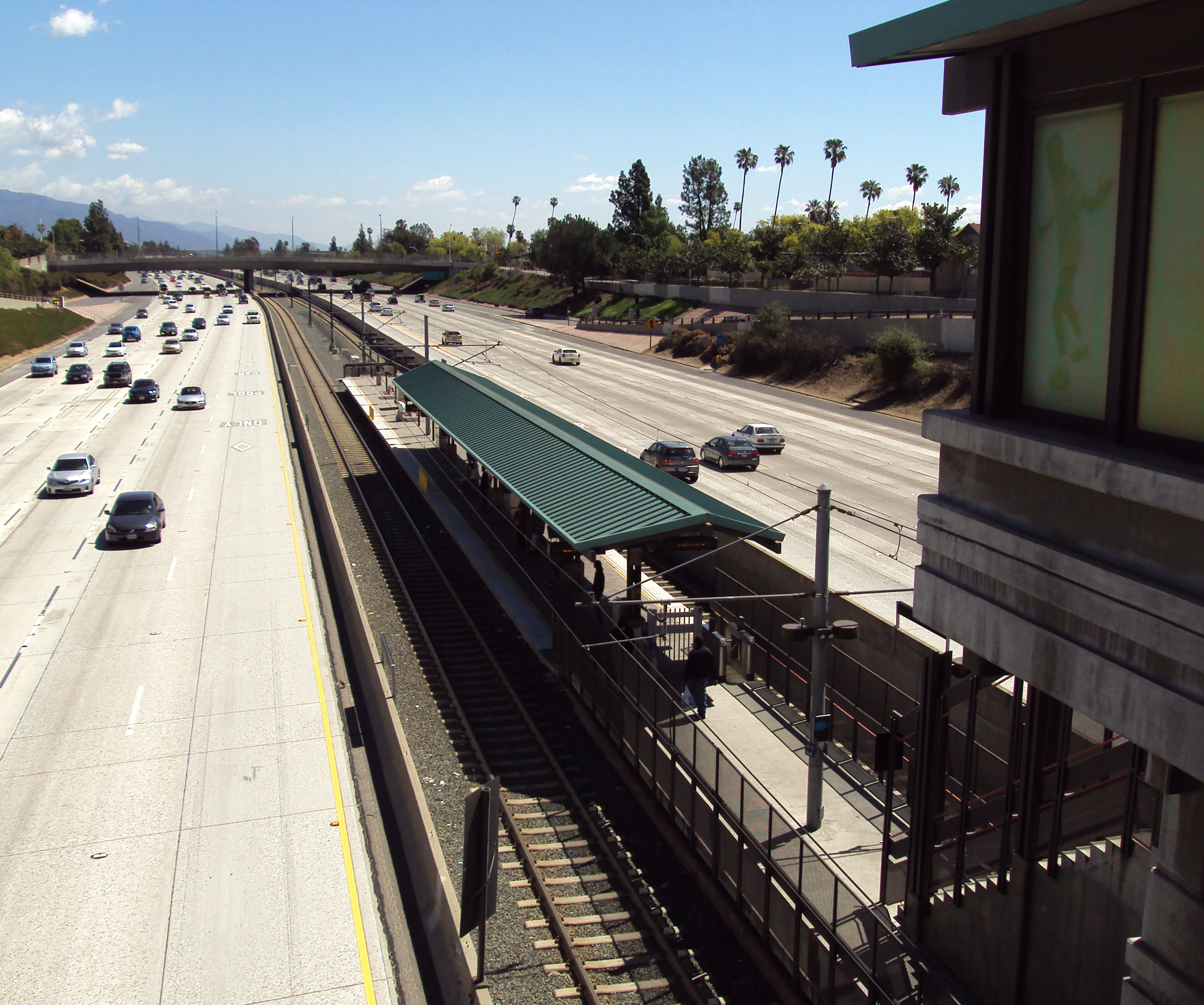UCLA alum’s study finds excessive traffic noise can negatively impact health

A study by UCLA alum Alexander Schaffer says commuters who use the Los Angeles train system often can have health problems later in life.
By Erin Donnelly
Sept. 10, 2012 3:28 a.m.
Her phone was ringing in her pocket and a man behind her was asking for directions, but Mandy Hoskinson could not hear any of it.
The only noise she registered, while standing on the platform waiting for her green line train to take her to her dentist’s office, was the deafening roar of cars speeding by.
“The cars are so loud,” the second-year global studies and music history student said. “You can’t hear anything.”
As the doors of the train closed behind her, she escaped the all-consuming noise of her train stop in the middle of the 105 Freeway, but not the health risks that accompany it.
Like other passengers who frequent the Los Angeles train system, Hoskinson may experience health problems from close encounters with loud freeway traffic, according to a recent study by Alexander Schaffer, an alum of the UCLA Luskin School of Public Affairs.
In the study released this summer, Schaffer explored how passengers who frequent train stops in the middle of a freeway can face health problems later in life, such as deafness or heart disease.
For the study, Schaffer went to many of the 16 Los Angeles train stops in freeway divides collecting data about the stops’ setup, he said. He also read medical journals and asked Metro representatives for reaction to studies on the health effects of excessive sound, he said.
Several studies have concluded that prolonged exposure to the roar of freeway traffic, without the barrier of a car window or wall, can have negative health effects, Schaffer said. The traffic noise adds stress to the body, causing deafness, heart problems or high blood pressure, he added.
Buildings bordering a freeway must include sound-reducing walls in their designs by law to avoid the health risks, Schaffer said.
Transit stops near freeways in other cities have walls to isolate platforms from the outside noise.
But L.A. Metro decided not to include the walls in their stops, according to the report.
Metro strives to do what is in the best interest of its passengers and there is currently no substantial evidence that sound barriers are worth the added effort and expense, according to Metro officials.
There is no conclusive evidence to prove health problems will arise in people who are near the traffic noise sporadically, such as passengers waiting on a platform for minutes.
Because passengers come and go at a high rate, it is difficult to pinpoint subjects and study the effect on their health over time, Schaffer said.
Some people who use public transit, such as UCLA alum Eric Nealy, are not too concerned about the possible health risks.
“If you aren’t near (freeway noise) very often then it isn’t something you should worry about. I do not mind,” said Nealy, who occasionally uses the trains.
Hoskinson usually spends about 15 minutes on the train platforms, she said.
Despite the loud noise Hoskinson endures several times a month and the potential health risk, she hopes Metro will not put up sound barriers.
“I have always kind of liked being in the middle of the freeway,” she said. “It’s annoying, but when else can you be that close to speeding cars? It’s kind of cool.”

